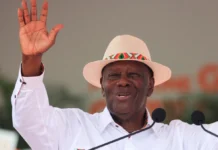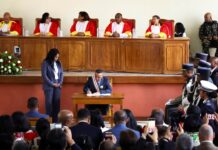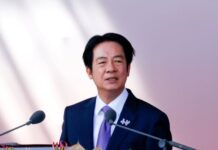Donald Trump has vowed to impose a 100% tariff on semiconductor imports in a bid to supercharge domestic manufacturing but said companies producing or pledging to build in the United States would be exempt.
The former president, speaking from the Oval Office on Wednesday, linked the move to Apple’s announcement of a $100bn investment in US-based facilities. “For companies like Apple that have committed to building in the US, there will be no charge,” Trump said.
He warned firms against attempting to dodge commitments: “If, for some reason, you say you’re building and you don’t build… we charge you at a later date.”
The remarks, made just ahead of a wave of tariffs ranging from 10% to 50% taking effect Thursday, sparked swift reactions globally, particularly in Asia, where chipmaking is a key export sector.
South Korea’s trade envoy clarified that giants like Samsung and SK Hynix would not be subject to the 100% rate, citing favourable terms under a bilateral deal with Washington. Taiwan’s TSMC, which has plants in the US, is expected to avoid penalties, protecting partners such as Nvidia.
But others voiced concern. The Philippines called the plan “devastating,” while Malaysia’s trade minister warned it could cost the country vital US market access.
Analysts suggested the move would favour the largest tech players with deep pockets. “It’s survival of the biggest,” said Brian Jacobsen of Annex Wealth Management.
The tariffs are the latest in a broader effort to shift chip production back to US soil. The Biden administration’s 2022 CHIPS Act earmarked $52.7bn to bolster domestic manufacturing. In 1990, the US produced 40% of the world’s chips — today, that figure stands at just 12%.
For now, it remains unclear whether Trump’s threats will materialise into formal policy.


















